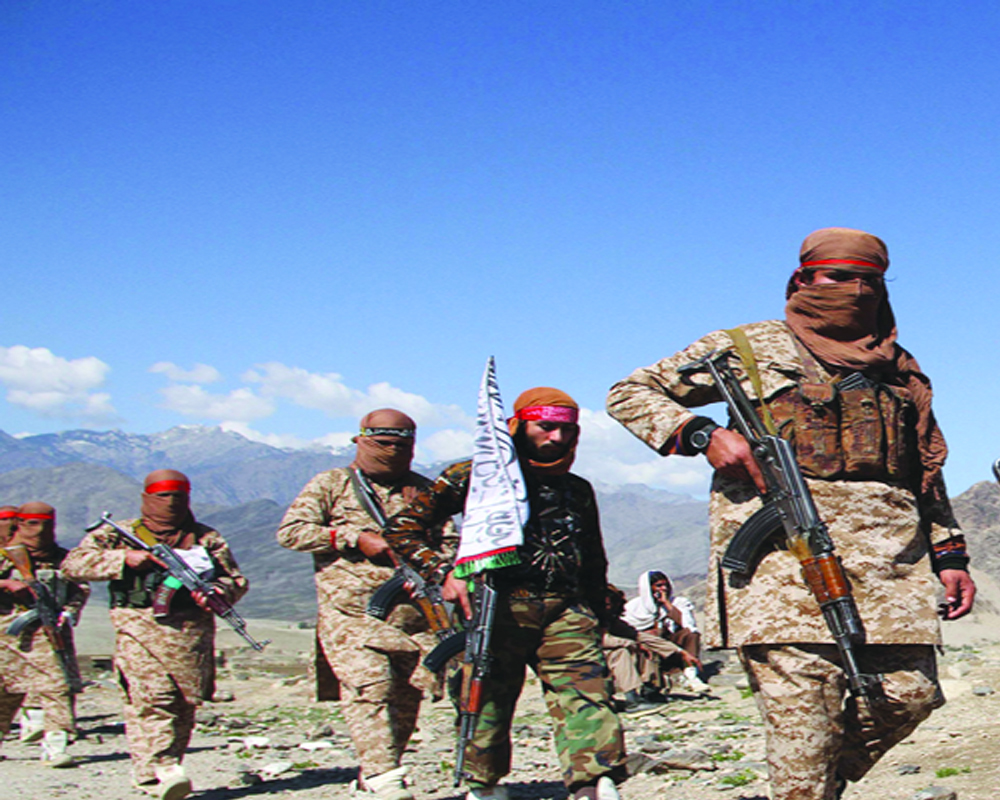To reach their own respective ends, China, Pakistan and Turkey have forged a hypothetical jointsmanship to counter the Taliban, but inherent fault lines remain
Owing to wounds specific from each of the three countries, New Delhi has been imagining the evolution of the decidedly anti-India Triad (China, Pakistan and Turkey). Global dynamics are in a state of perennial churn and, as the highest temple of realpolitik, China typically bides its time on the sidelines and then swoops in to exploit topical tensions and desperations towards exceptional concessions. In stitching tactical alliances, China suffers no issues of ideology, morality or history to fructify its “larger good” — this unhinged freedom of joining hands can bear the wholly unnatural construct like the “all-weather friendship” between ‘Communist’ China and the ‘Islamic’ Republic of Pakistan, where the common “enemy” is the greater force than the ideological, governance and even civilisational disconnect that besets these two starkly distinct sovereigns. The roots of this transactional friendship date back to 1963, when large tracts of Pakistan Occupied Kashmir (POK) were given to China.
The even more distant Turkey is an enthusiastic and vocal Johnny-come-lately to ingratiate itself with Pakistan by brandishing “Kashmir”, for its own selfish reasons of winning Pakistani support for its leadership bid, within the fractious ummah (Muslim world). However, India’s growing strategic proximity to the US and the parallel narrative of crotchety relations of Washington DC with Islamabad, Ankara and Beijing are layering the most decisive “bind” for the formulation of an essentially antithetical Triad. The efficacy and test of this Triad will be inevitable in strategic realms and geographical theatres, wherever the interests of the US either coexist or militate with that of the Triad members — the imploding swathes of Afghanistan will validate the quantum of “bind” for the effective functioning of such a Triad.
Afghanistan has cartographical contiguity with both Pakistan and China, as also co-religious denomination with Turkey (critical for posturing within the ummah) — this reality, when conflated with the hasty exit of the US/NATO troops, opens the region to new opportunities and threats among the competing blocs, and some commentators fear the possible jointsmanship of the Triad. Earlier, news of the Chinese engaging discreetly with the rapidly advancing Taliban (promoted by the Pakistani ‘establishment’) and, more recently, of Turkey securing the rights to operate Kabul’s Hamid Karzai International Airport and the unrelated talks of a $3 billion Chinese loan to the Turks have given credence to the possibility of a Triad in the making, and shaping future moves in places like Afghanistan. But this is not a seamless hypothesis as it is predicated on many simplistic assumptions of unrelated signals, post-takeover behaviour of the Taliban as also overlooking inherent fault lines within the Triad ideation.
Firstly, the Taliban is not expected to show diplomatic dexterity or flexibility in dealing with any foreign power, especially a Communist power and a NATO power. The Taliban have stated plainly: “Turkey is a Muslim, brother country. However, since it’s also a NATO member, if it remains in Afghanistan, it would not be any different from the US for us.” Similarly, despite being the progenitor of Taliban in pursuance of its “Strategic Depth” policy, Pakistan now fears a complete takeover by the Taliban as it recognises the lack of any accompanying guarantees, promises or commitments when it comes to the lawless and non-monolithic force like the Taliban. Despite Taliban’s recent assurances to China on non-interference, reports of up to 500 members of the Uyghur militant group, East Turkestan Islamic Movement (ETIM) in Afghanistan, are disconcerting for Beijing. The Taliban have already taken over the northeastern Badakhshan province, along China’s restive Xinjiang region, and its ability, temperament and sincerity to control the cross-border movement of Uyghur militants are historically suspect.
Even among themselves, other than the lingering anti-US sentiment, Turkey’s ambitions within the ummah will complicate its relationship with China as acquiescence to the Chinese position on Uyghurs (like done by Pakistan) would deligitimise and enfeeble Recep Erdogan’s Islamic credentials. While Turkey has growing commercial-military transactions (including purported interest in Ankara buying J-31, fifth-generation fighter planes) as also banning ETIM, but given the Turkic ethnicity and ancestry of the beleaguered Chinese Uyghurs — not confronting the Chinese on the Uyghurs is not an option, given Turkey’s larger aspirations. Also, despite Turkey’s international bellicosity and rabidity, it remains a part of the NATO ecosystem with approximately 50 US tactical nuclear weapons at its Incirlik Air Base. Behind the scenes, the US does have strong levers to restrain Turkey if its extracurricular activities run contrary to US interests in the Indo-Pacific region, the expected heartland of Triad activity.
While cooperating with each other at multilateral forums could be par for the course for the Triad, expecting “ground deployment” of this concept is still very distant, if ever. Turkey is part of the hypothetical Triad for furthering its global/ummah resonances with little practical interest in Afghanistan or Kashmir, whereas China is driven by its hegemonic and opportunistic instincts — but there are too many assumptions and contradictory forces within to postulate effective and non-conflicting “bind”. Lastly, other imperatives will be at work to deter such a Triad, as Biden forewarned of actions to ensure “that China does not eat our lunch” — others like India, Iran and the Arab Sheikhdoms wouldn’t be sitting idle either.
(The writer, a military veteran, is a former Lt Governor of Andaman & Nicobar Islands and Puducherry. The views expressed are personal.)


























